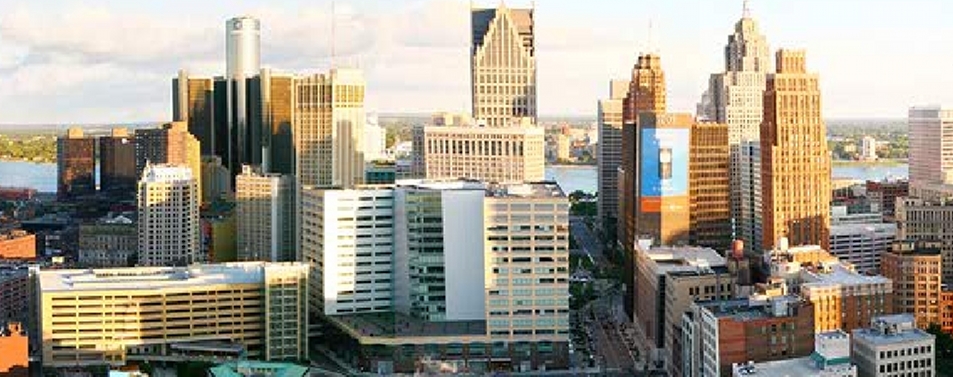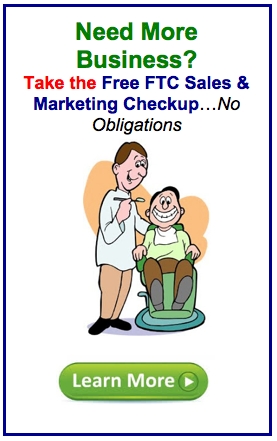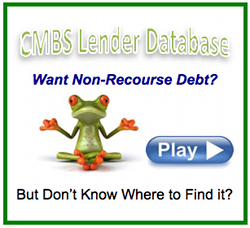What Type of SBA Loan is Right for Me?
Warning: Use of undefined constant user_level - assumed 'user_level' (this will throw an Error in a future version of PHP) in /home/zzgspc5zic0z/domains/findthecapital.com/html/wp-content/plugins/ultimate-google-analytics/ultimate_ga.php on line 524
Article by, Brent Virkus of Find the Capital and TRiTON Capital Advisory
 Now that the economy seems to be getting better, we are getting a lot of questions from our clients about SBA financing for their small business and real estate investments. In this article, we thought we would give you a quick rundown on exactly what an SBA loan is and how it works.
Now that the economy seems to be getting better, we are getting a lot of questions from our clients about SBA financing for their small business and real estate investments. In this article, we thought we would give you a quick rundown on exactly what an SBA loan is and how it works.
Whether you’re looking to expand your business, purchase or refurbish equipment, take on new real estate or refinance an existing mortgage or agreement, a small business administration (SBA) loan can achieve modified financing in order to help your company grow.
An SBA loan has been the answer to many cash-flow issues that otherwise successful businesses have had. This business loan is guaranteed in part by the U.S. Small Business Administration and can offer certain small business-specific benefits which are not available with other types of loans. These loans can be used for a wide range of purposes and are often utilized in order to support owner-occupied commercial property, maintain or purchase new equipment, as working capital, for furniture or fixtures, with leasehold improvements, for debt refinancing and for start-up capital. Types of SBA Loans:
SBA 7(a)
Who is Eligible:
SBA provides loans to businesses — not individuals — so the requirements of eligibility are based on aspects of the business, not the owners. As such, the key factors of eligibility are based on what the business does to receive its income, the character of its ownership and where the business operates.
SBA generally does not specify what businesses are eligible. Rather, the agency outlines what businesses are not eligible. However, there are some universally applicable requirements. To be eligible for assistance, businesses must:
- Operate for profit
- Be small, as defined by SBA
- Be engaged in, or propose to do business in, the United States or its possessions
- Have reasonable invested equity
- Use alternative financial resources, including personal assets, before seeking financial assistance
- Be able to demonstrate a need for the loan proceeds
- Use the funds for a sound business purpose
- Not be delinquent on any existing debt obligations to the U.S. government
Ineligible Businesses
A business must be engaged in an activity SBA determines as acceptable for financial assistance from a federal provider. The following list of businesses types are not eligible for assistance because of the activities they conduct:
- Financial businesses primarily engaged in the business of lending, such as banks, finance companies, payday lenders, some leasing companies and factors (pawn shops, although engaged in lending, may qualify in some circumstances)
- Businesses owned by developers and landlords that do not actively use or occupy the assets acquired or improved with the loan proceeds (except when the property is leased to the business at zero profit for the property’s owners)
- Life insurance companies
- Businesses located in a foreign country (businesses in the U.S. owned by aliens may qualify)
- Businesses engaged in pyramid sale distribution plans, where a participant’s primary incentive is based on the sales made by an ever-increasing number of participants
- Businesses deriving more than one-third of gross annual revenue from legal gambling activities
- Businesses engaged in any illegal activity
- Private clubs and businesses that limit the number of memberships for reasons other than capacity
- Government-owned entities
- Businesses principally engaged in teaching, instructing, counseling or indoctrinating religion or religious beliefs, whether in a religious or secular setting
- Consumer and marketing cooperatives (producer cooperatives are eligible)
- Loan packagers earning more than one third of their gross annual revenue from packaging SBA loans
- Businesses in which the lender or CDC, or any of its associates owns an equity interest
- Businesses that present live performances of an indecent sexual nature or derive directly or indirectly more 2.5 percent of gross revenue through the sale of products or services, or the presentation of any depictions or displays, of an indecent sexual nature
- Businesses primarily engaged in political or lobbying activities
- Speculative businesses (such as oil exploration)
There are also eligibility factors for financial assistance based on the activities of the owners and the historical operation of the business. As such, the business cannot have been:
- A business that caused the government to have incurred a loss related to a prior business debt
- A business owned 20 percent or more by a person associated with a different business that caused the government to have incurred a loss related to a prior business debt
- A business owned 20 percent or more by a person who is incarcerated, on probation, on parole, or has been indicted for a felony or a crime of moral depravity
Special Considerations
Special considerations apply to some types of businesses and individuals, which include:
- Franchises are eligible except when a franchiser retains power to control operations to such an extent as to equate to an employment contract; the franchisee must have the right to profit from efforts commensurate with ownership
- Recreational facilities and clubs are eligible if the facilities are open to the general public, or in membership-only situations, membership is not selectively denied or restricted to any particular groups
- Farms and agricultural businesses are eligible, but these applicants should first explore Farm Service Agency (FSA) programs, particularly if the applicant has a prior or existing relationship with FSA
- Fishing vessels are eligible, but those seeking funds for the construction or reconditioning of vessels with a cargo capacity of five tons or more must first request financing from the National Marine Fisheries Service
- Privately owned medical facilities including hospitals, clinics, emergency outpatient facilities, and medical and dental laboratories are eligible; recovery and nursing homes are also eligible, provided they are licensed by the appropriate government agency and they provide more than room and board
- An Eligible Passive Company (EPC) must use loan proceeds to acquire or lease, and/or improve or renovate, real or personal property that it leases to one or more operating companies and must not make any profit from conducting its activities
- Legal aliens are eligible; however, consideration is given to status (e.g., resident, lawful temporary resident) in determining the business’ degree of risk
- Probation or parole: Applications will not be accepted from firms in which a principal is currently incarcerated, on parole, on probation or is a defendant in a criminal proceeding
Use of 7(a) Loan Proceeds
If you are awarded a 7(a) loan, you can use the loan proceeds to help finance a large variety of business purposes. However, there are a few restrictions. For example, proceeds can’t be used to buy an asset to hold for its potential increased value or to reimburse an owner for the money they previously put into their business.
Basic uses for 7(a) loan proceeds include:
- To provide long-term working capital to use to pay operational expenses, accounts payable and/or to purchase inventory
- Short-term working capital needs, including seasonal financing, contract performance, construction financing and exporting
- Revolving funds based on the value of existing inventory and receivables, under special conditions
- To purchase equipment, machinery, furniture, fixtures, supplies or materials
- To purchase real estate, including land and buildings
- To construct a new building or renovate an existing building
- To establish a new business or assist in the acquisition, operation or expansion of an existing business
- To refinance existing business debt, under certain conditions
SBA loans cannot be used for these purposes:
- To refinance existing debt where the lender is in a position to sustain a loss and SBA would take over that loss through refinancing
- To affect a partial change of business ownership or a change that will not benefit the business
- To permit the reimbursement of funds owed to any owner, including any equity injection or injection of capital to continue the business until the SBA-backed loan is disbursed
- To repay delinquent state or federal withholding taxes or other funds that should be held in trust or escrow
- For a purpose that is not considered to be a sound business purpose as determined by SBA
- If you are unsure whether or not your anticipated use of funds is allowed, check with your SBA-approved lender
SBA Microloan
Microloan Program
The Microloan program provides loans up to $50,000 to help small businesses and certain not-for-profit childcare centers start up and expand. The average microloan is about $13,000.
The U.S. Small Business Administration provides funds to specially designated intermediary lenders, which are nonprofit community-based organizations with experience in lending as well as management and technical assistance. These intermediaries administer the Microloan program for eligible borrowers.
Eligibility Requirements
Each intermediary lender has its own lending and credit requirements. Generally, intermediaries require some type of collateral as well as the personal guarantee of the business owner.
Use of Microloan Proceeds
Microloans can be used for:
- Working capital
- Inventory or supplies
- Furniture or fixtures
- Machinery or equipment
Proceeds from an SBA microloan cannot be used to pay existing debts or to purchase real estate.
Repayment Terms, Interest Rates, and Fees
Loan repayment terms vary according to several factors:
- Loan amount
- Planned use of funds
- Requirements determined by the intermediary lender
- Needs of the small business borrower
The maximum repayment term allowed for an SBA microloan is six years.
Interest rates vary, depending on the intermediary lender and costs to the intermediary from the U.S. Treasury. Generally, these rates will be between 8 and 13 percent.
Application Process
Microloans are available through certain nonprofit, community-based organizations that are experienced in lending and business management assistance. If you apply for SBA microloan financing, you may be required to fulfill training or planning requirements before your loan application is considered. This business training is designed to help you launch or expand your business.
SBA CDC/504 Real Estate Loan
CDC/504 Loan Program Eligibility
To be considered for Certified Development Company(CDC)/504 loan, applicants must meet these eligibility requirements:
- Operate as a for-profit company
- Do business (or propose to) in the United States or its possessions
- Has a tangible net worth less than $15 million and an average net income less than $5.0 million after taxes for the preceding two years.
- Loans cannot be made to businesses engaged in speculation or investment in rental real estate.
- Be an eligible type of business. While the vast majority of businesses are eligible for financial assistance from the SBA, some are not.
- Under the 504 Program, Plan to use proceeds for an approved purpose. CDC/504 loan proceeds may be used for the financing of fixed assets like real estate or equipment. This list explains Eligible and Ineligible Use of Proceeds.
- Not have funds available from other sources. SBA does not extend financial assistance to businesses when the financial strength of the individual owners or the company itself is sufficient to provide all or part of the financing. Both business and personal financial resources are reviewed as part of the eligibility criteria. If these resources are found to be excessive, the business will be required to use those resources in lieu of part or all of the requested loan proceeds.
- Ability to repay the loan on time from the projected operating cash flow of the business
- Good character. SBA obtains a “Statement of Personal History” from the principals of each applicant firm to determine if they have historically shown the willingness and ability to pay their debts and whether they have abided by the laws of their community
- Relevant management expertise
- Feasible business plan
Use of CDC/504 Loan Proceeds
A 504 loan can be used for:
- The purchase of land, including existing buildings
- The purchase of improvements, including grading, street improvements, utilities, parking lots and landscaping
- The construction of new facilities or modernizing, renovating or converting existing facilities
The purchase of long-term machinery and equipment
A 504 loan cannot be used for:
- Working capital or inventory
- Consolidating, repaying or refinancing debt
- Speculation or investment in rental real estate
Let us help you with your next project capitalization or refinance. We’d enjoy the opportunity!
Submit Capital Request








Trackbacks/Pingbacks
Warning: Use of undefined constant user_level - assumed 'user_level' (this will throw an Error in a future version of PHP) in /home/zzgspc5zic0z/domains/findthecapital.com/html/wp-content/plugins/ultimate-google-analytics/ultimate_ga.php on line 524
What Exactly is an SBA Loan? | Triton Capital Advisory - […] Click Here to Read On>> […]